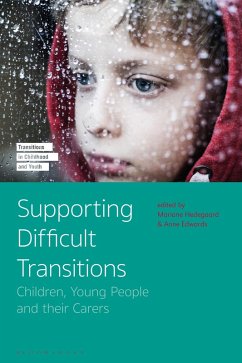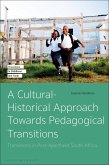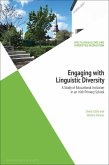The international contributors to Supporting Difficult Transitions discuss examples of transitions that are problematic for children, young people and their carers. Focusing on vulnerable children and young people, the transitions include: starting school, changing schools, starting work, entering a new culture or a culture that has been changed to focusing on vulnerable children and young people. The book will be useful to practitioners involved in supporting children and their carers as they make these moves; students and course tutors in the caring professions; researchers; and policy makers and those who implement policy for children and young people. The different case examples are given coherence by drawing on cultural-historical approaches to how people move between practices. Particular attention is paid to how practitioners can build shared understandings of what matters for children and young people and for the institutions they are entering. These understandings become a resource to strengthen collaborations between practitioners or between practitioners and the children and their carers, as they support entry into new practices.
Bitte wählen Sie Ihr Anliegen aus.
Rechnungen
Retourenschein anfordern
Bestellstatus
Storno









